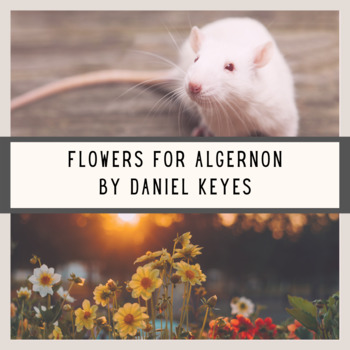
Bound in gray cloth over boards, with slight soiling to extremities, else near fine. Shortly after its publication, Flowers for Algernon was adapted into a feature film with the title Charly, whose leading man, Cliff Robertson, received an Academy Award for Best Actor. Keyes was inspired by his own experiences as an English teacher to students with special needs, during which time he witnessed a dramatic change in one student who regressed after being removed from regular lessons. Throughout the novel, Keyes reflects on the ethics and morality of medical testing, the treatment of animals, and especially society's relationship with the mentally disabled. Algernon, a laboratory mouse, has already completed the procedure. Written as a series of journal entries from its main character, Charles Gordon, the novel follows Gordon's progression as the subject of an experimental surgery to artifically increase intelligence.


First appearing as a short story in 1959, this first expanded edition of Flowers for Algernon earned immediate acclaim, becoming a joint winner of the 1966 Nebula Award for Best Novel. The Oscar-winning movie adaptation Charly (1968) also spawned a 1980 Broadway musical.įirst edition. As a 1959 novella it won a Hugo Award the 1966 novel-length expansion won a Nebula. In poignant diary entries, Charlie tells how a brain operation increases his IQ and changes his life. With more than five million copies sold, Flowers for Algernon is the beloved, classic story of a mentally disabled man whose experimental quest for intelligence mirrors that of Algernon, an extraordinary lab mouse.


Fine in a near fine dust jacket with light wear to the extremities. Daniel Keyes." Additionally signed again by the author on the title page. Signed by the author on the half-title page, who has transcribed the opening paragraph as follows, "I hope they use me becaus Miss Kinnian says mabye ÂMy name is Charlie Gordon I werk in Donner bakery gives me 11 dollers a week and bred or cake if I want. First edition of the author's Hugo and Nebula Award-winning novel, basis for the Oscar award-winning movie adaptation Charly.


 0 kommentar(er)
0 kommentar(er)
